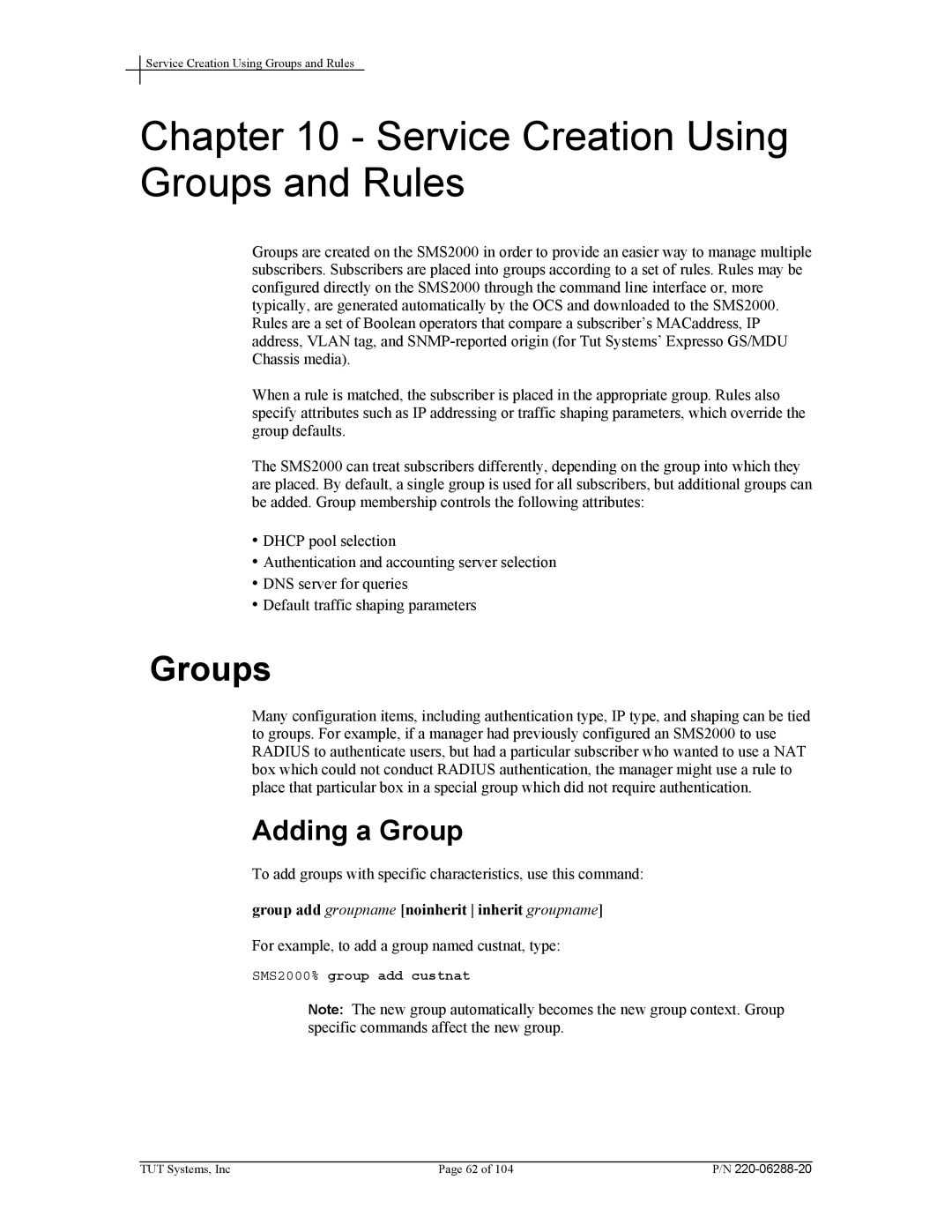
Service Creation Using Groups and Rules
Chapter 10 - Service Creation Using Groups and Rules
Groups are created on the SMS2000 in order to provide an easier way to manage multiple subscribers. Subscribers are placed into groups according to a set of rules. Rules may be configured directly on the SMS2000 through the command line interface or, more typically, are generated automatically by the OCS and downloaded to the SMS2000. Rules are a set of Boolean operators that compare a subscriber’s MACaddress, IP address, VLAN tag, and
When a rule is matched, the subscriber is placed in the appropriate group. Rules also specify attributes such as IP addressing or traffic shaping parameters, which override the group defaults.
The SMS2000 can treat subscribers differently, depending on the group into which they are placed. By default, a single group is used for all subscribers, but additional groups can be added. Group membership controls the following attributes:
•DHCP pool selection
•Authentication and accounting server selection
•DNS server for queries
•Default traffic shaping parameters
Groups
Many configuration items, including authentication type, IP type, and shaping can be tied to groups. For example, if a manager had previously configured an SMS2000 to use RADIUS to authenticate users, but had a particular subscriber who wanted to use a NAT box which could not conduct RADIUS authentication, the manager might use a rule to place that particular box in a special group which did not require authentication.
Adding a Group
To add groups with specific characteristics, use this command:
group add groupname [noinherit inherit groupname]
For example, to add a group named custnat, type:
SMS2000% group add custnat
Note: The new group automatically becomes the new group context. Group specific commands affect the new group.
TUT Systems, Inc | Page 62 of 104 | P/N |
